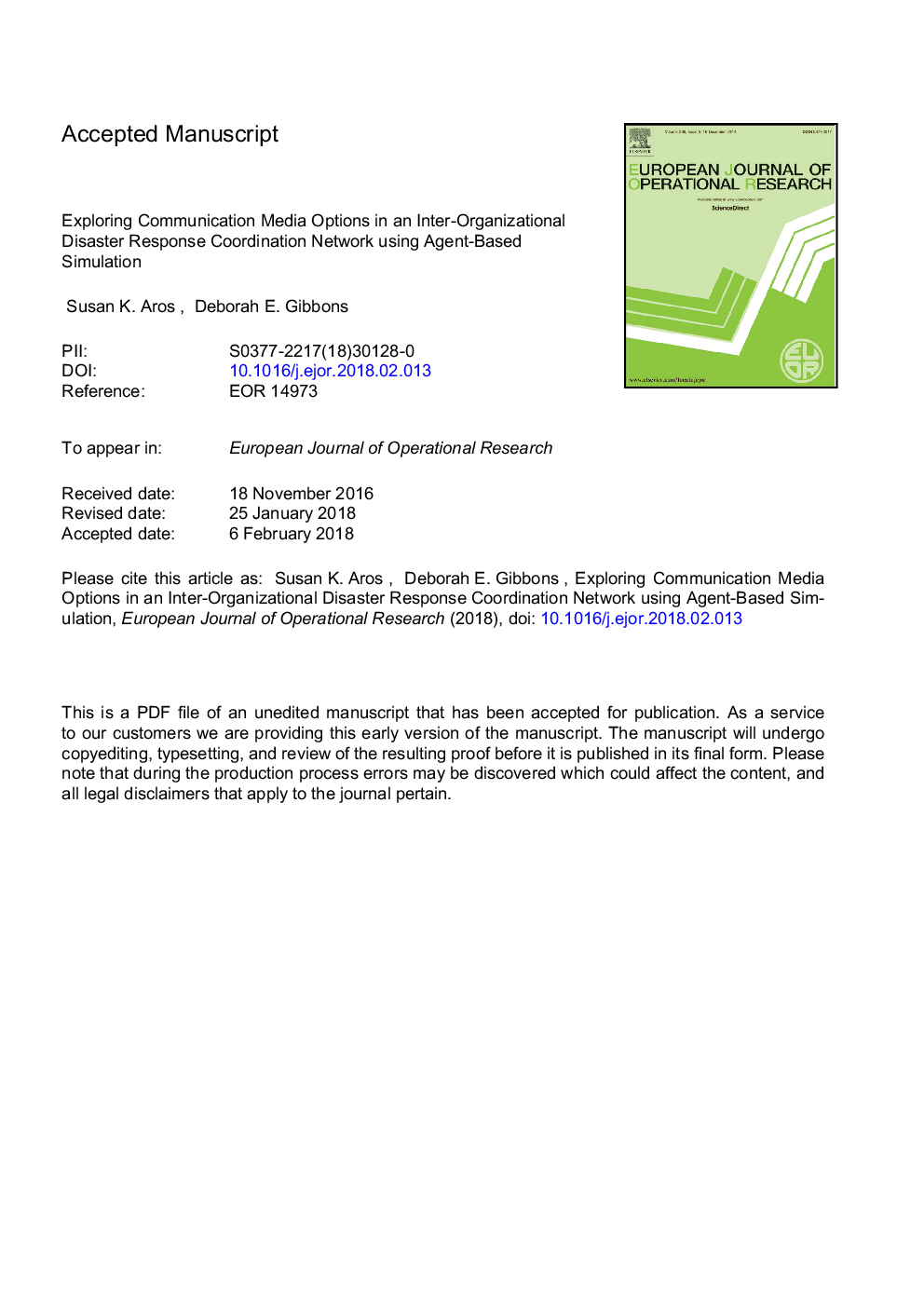| Article ID | Journal | Published Year | Pages | File Type |
|---|---|---|---|---|
| 6894690 | European Journal of Operational Research | 2018 | 35 Pages |
Abstract
Large-scale disasters require rapid, well-coordinated responses from many organizations. This coordination involves extensive communication about specific needs, resource availability, optimal sizes and packaging of goods, and location and timing of deliveries. Faster, more accurate communication within the disaster response network translates to more effective response at the disaster site. This article presents a modeling project that assessed the effects of distinct communication media on response times within a centralized network. In the United States, the Federal Emergency Management Agency (FEMA) provides support and coordination among numerous responding agencies. An initial agent-based simulation model incorporated data from participant interviews and FEMA documentation about communication processes among response organization representatives. This model tracked effects of meetings, meeting scheduling, and bulletins on time required to complete the processing of requests. Following a second round of interviews and detailed observations during a national disaster exercise, we built a second agent-based simulation model that varied usage of email, phone, and face-to-face communications alongside a centralized information system and tracked the processing of anticipated, standard, and non-standard resource requests. Results show significant effects of different combinations of communication media on response times. Recommendations based on the study include: resist the temptation to schedule more than one meeting per day; use bulletins to disseminate information updates; supplement the centralized information system with direct interpersonal communication media such as email; and for unusual or difficult requests enable representatives to have in-person conversations or the closest alternative such as video teleconferencing with screen-sharing.
Related Topics
Physical Sciences and Engineering
Computer Science
Computer Science (General)
Authors
Susan K. Aros, Deborah E. Gibbons,
